Gremolata
Gremolata is an Italian condiment made of parsley, lemon, and garlic. You can sprinkle it on pasta, veggies, or even sandwiches for a flash of fresh, bright flavor.
![]()
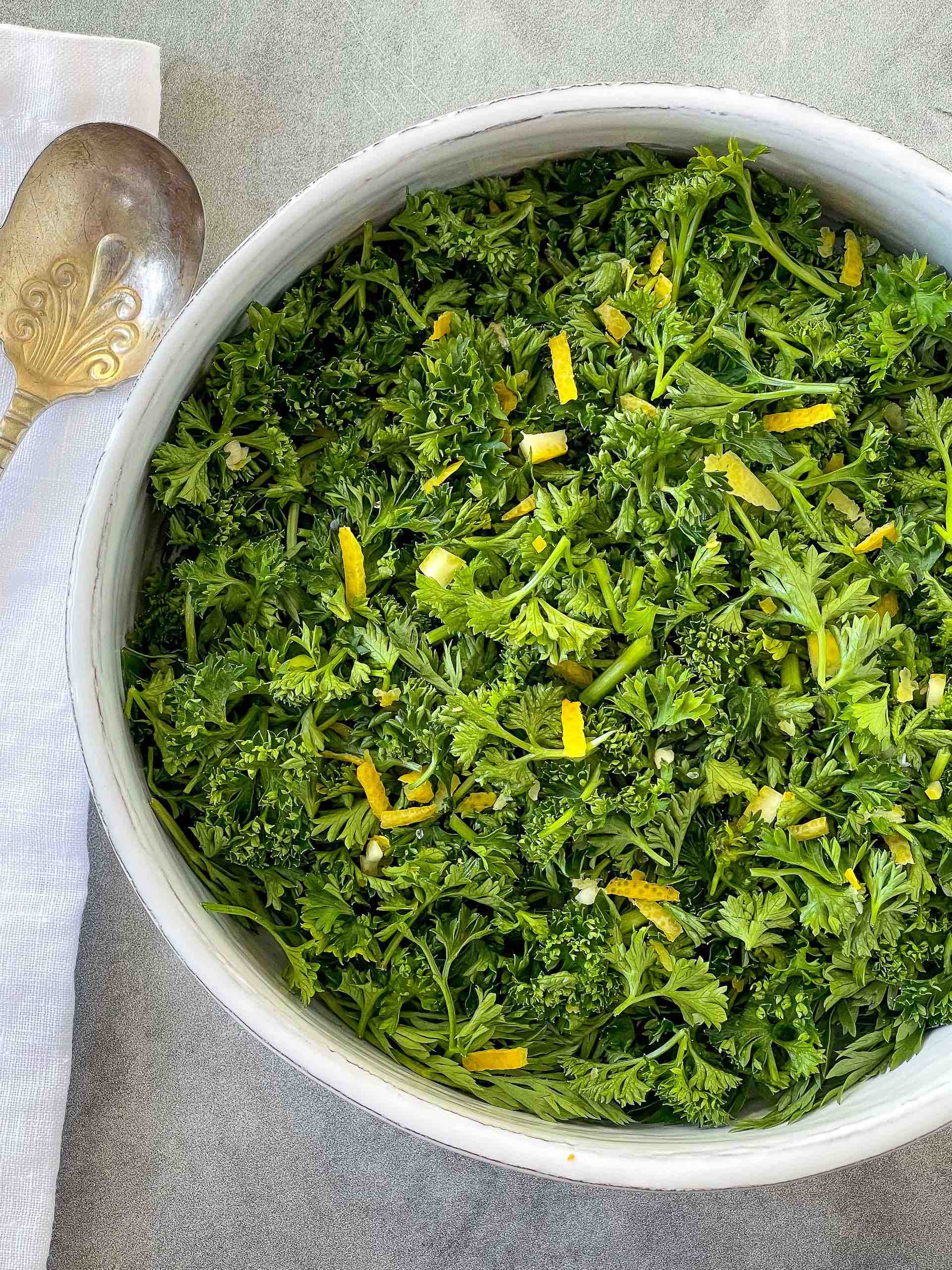
Gremolata is the new “It Girl” in my kitchen. I have a well-developed taste for all things fresh herbs and gremolata has a permanent spot on my list of favorite herb condiments. It’s fresh, bright, light and flavorful and adds an eye-catching fleck of green to any dish.
Gremolata is a classic Italian condiment. It calls for the parsley and garlic to be chopped pretty finely. A food processor will turn the parsley into a wet puree rather than the intended rustic texture. It is best to chop the herb and garlic with a sharp knife even though it’s more time-consuming and labor-intensive.
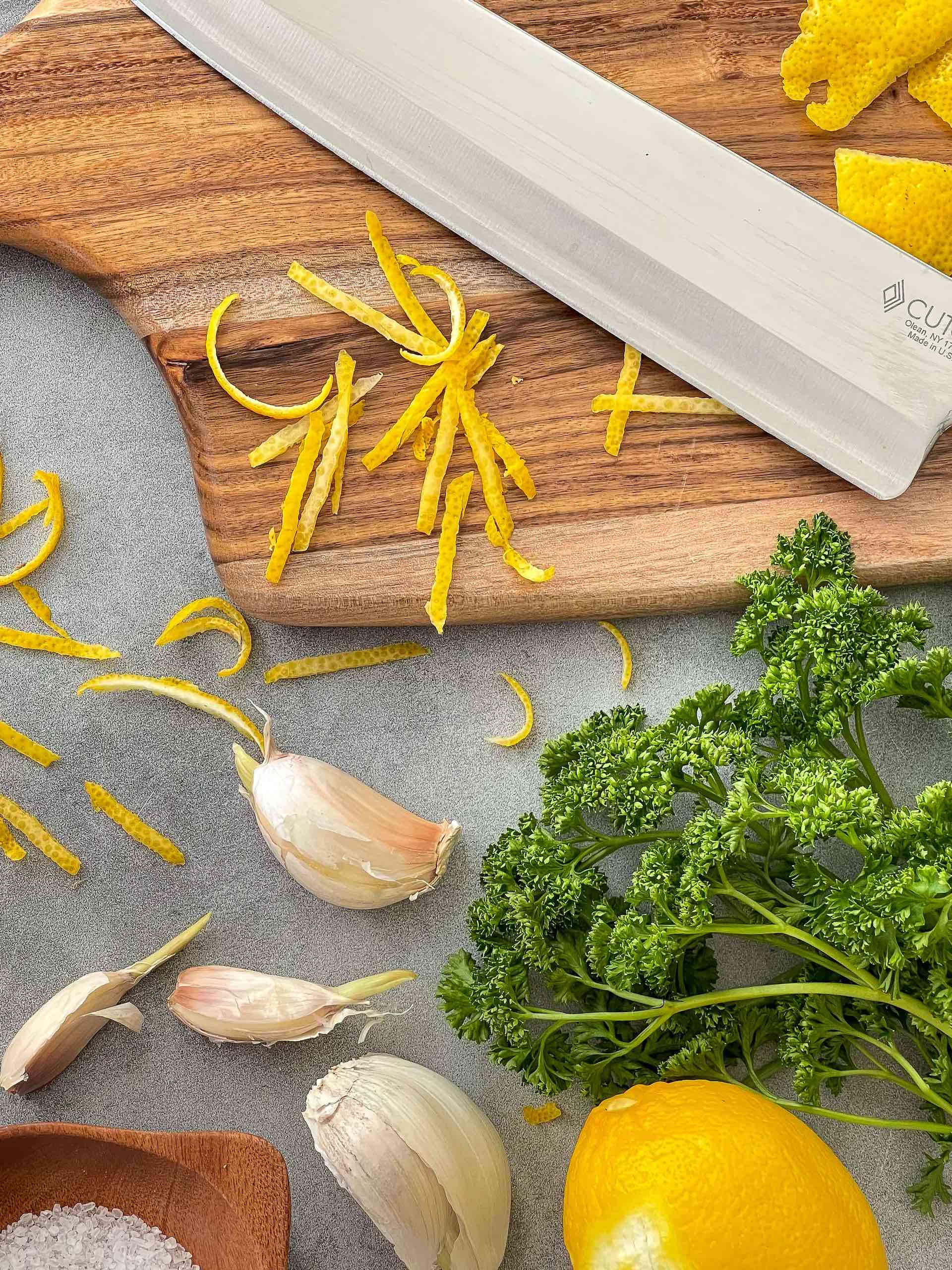
Gremolata Ingredients.
There’s only 3 simple ingredients!
-
- Fresh parsley – I have used different varieties of parsley- flat leaf, Italian and curly. I like them all, but flat leaf is best. Be sure it’s completely dry when you chop it so it doesn’t stick together later.
- Lemon zest – Lemon zest adds brightness to your gremolata. I use organic lemons since the peels are often exposed to any pesticides.
- Garlic – One or two cloves of garlic bring a depth and some heat to the simple gremolata. Use fresh garlic, not jarred. I used a garlic press which ensure freshness and great flavor.
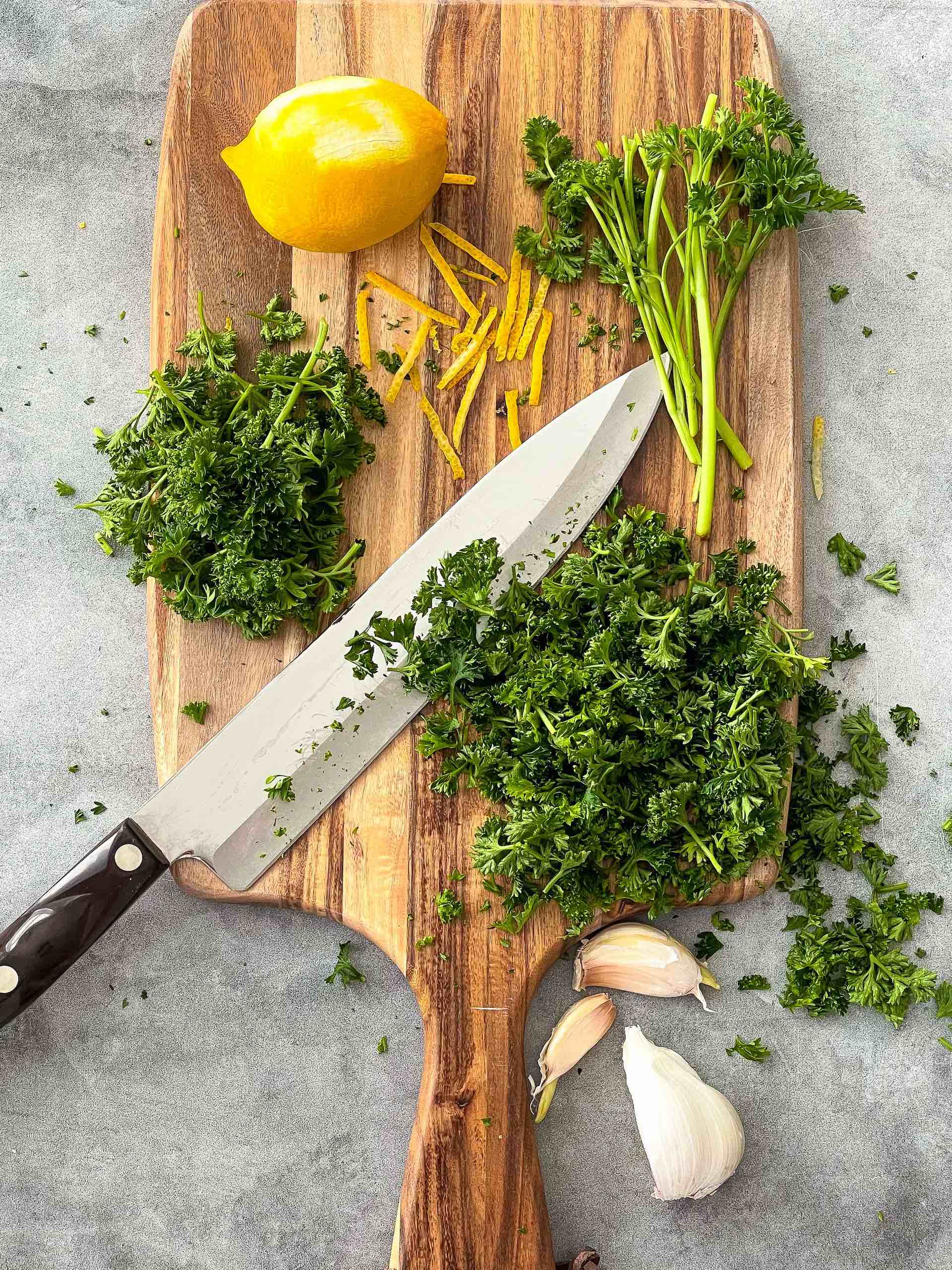
How to Make Gremolata
So it’s so easy you’ll wish you’d tried it sooner.
First, finely chop the parsley and the garlic. I used curly parsley for this recipe, but flat leaf parsley is good too. Then combine the parsley, garlic, lemon zest, and add a little sea salt for taste and ‘Voila’, you have made gremolata in about 5 minutes
As I mentioned chop the parsley by hand. I find that I have more control over the gremolata’s consistency this way. In a food processor, it’s easy to over-process the parsley and it loses it fresh, bouncy texture.
Although I show finely chopping the lemon zest with a chef’s knife in my photos, I generally grate it on a microplane zester. The fine shreds evenly incorporate with the parsley and you don’t end up with a big chunk of garlic in any one bite.
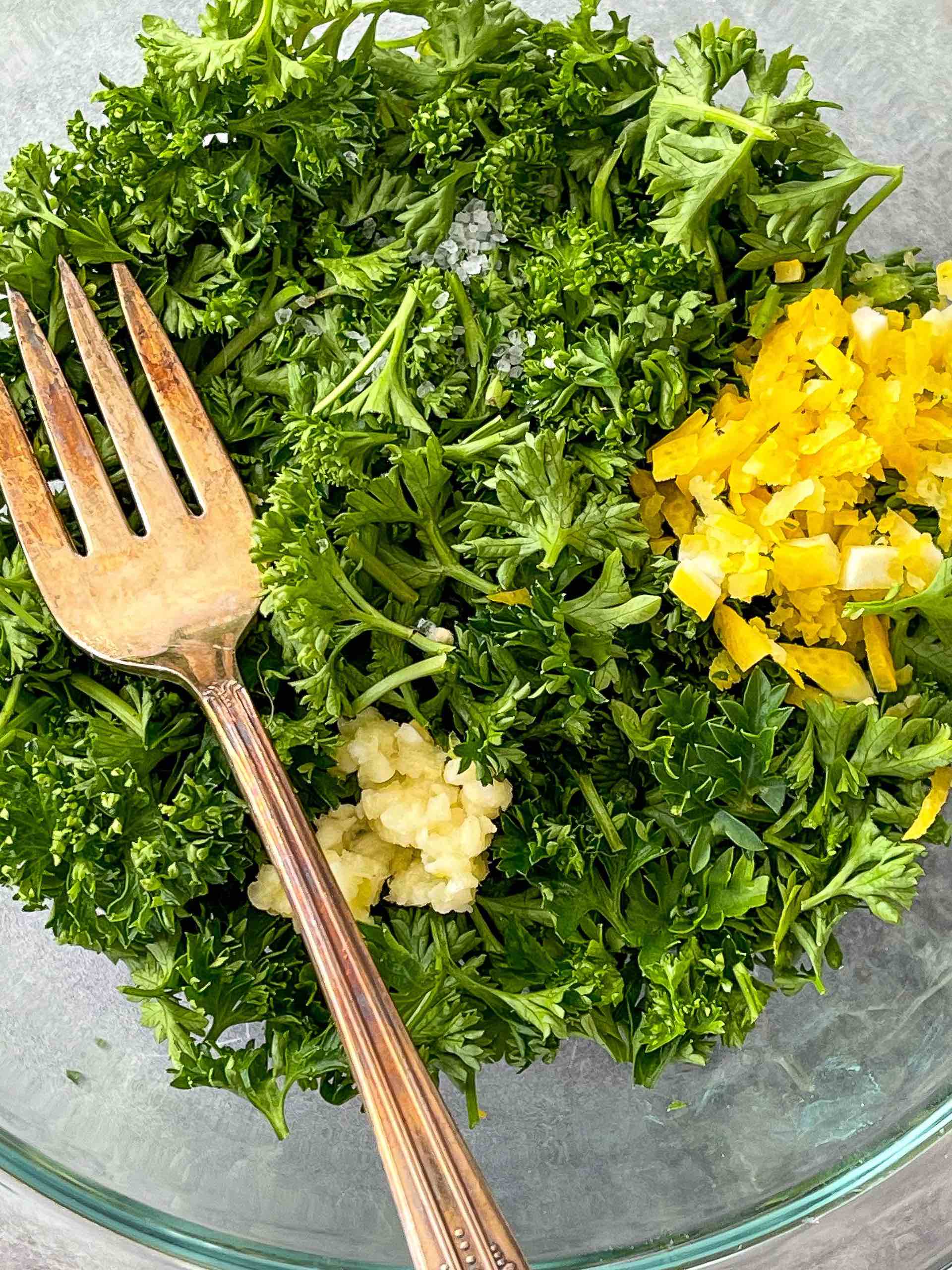
How to Use Gremolata
Gremolata is traditionally served with veal, especially the classic braised veal dish osso buco. But, it’s uses extend far beyond into pasta, salads, veggies and more.
-
- Sprinkle over roasted veggies. Try it on roasted cauliflower, broccoli, or even cherry tomatoes
- Toss it with salads. My baby beet green salad is a natural as well as a peach and arugula salad. The addition of gremolata elevates these simple salads to something a bit more elegant.
- Sprinkle over pasta. Gremolata adds a burst of color and freshness to pasta dishes like my simple pasta salad, cherry tomato pasta, or cherry tomato couscous salad.
Here’ are a few ways to use you gremolata.

Gremolata Variations
Gremolata is very adaptable.
-
- Change up the herb. You don’t have parsley? No problem. Substitute cilantro, basil, or even mint just as long as it’s a soft, leafy herb the substitution will work
- Switch up the zest. You can use orange zest for a different taste or even sharper a lime.
- Add different ingredients. Pine nuts or even pistachios will work, as well as, Parmesan cheese or perhaps salty capers. Feel free to experiment.
Let me know what variations you use in the comments below.
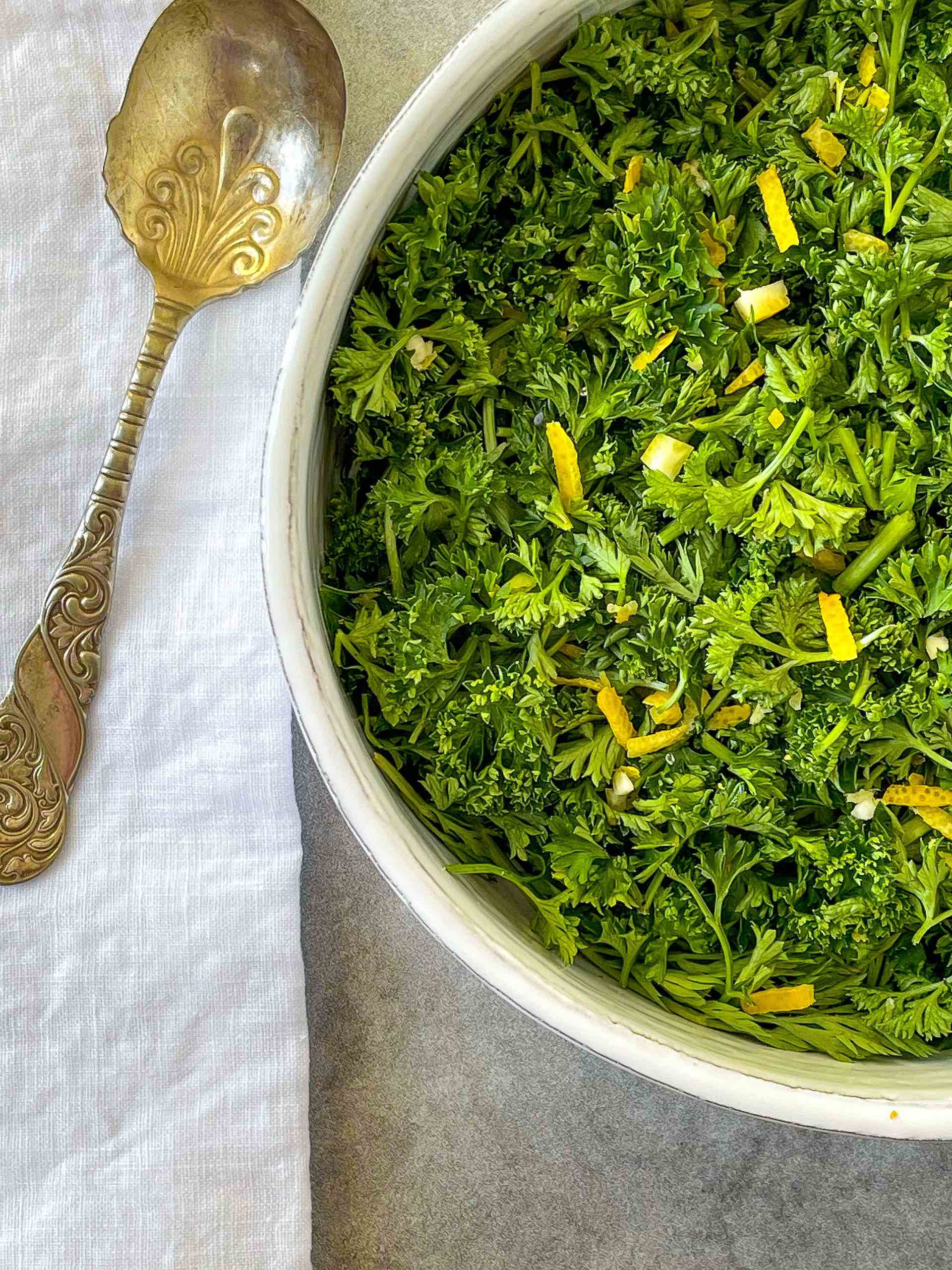
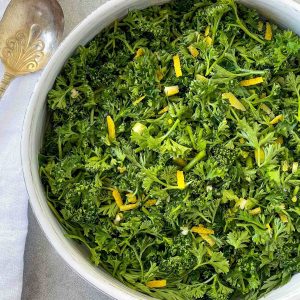
Gremolata
Ingredients
- 1 bunch bunch fresh parsley, finely chopped (about ¾ cup)
- 2 tsp lemon zest
- 1 clove garlic clove, grated
- 1/8 tsp sea salt
Instructions
- In a small bowl, stir together the parsley, lemon zest, garlic, and salt.
- Blog post has serving suggestions

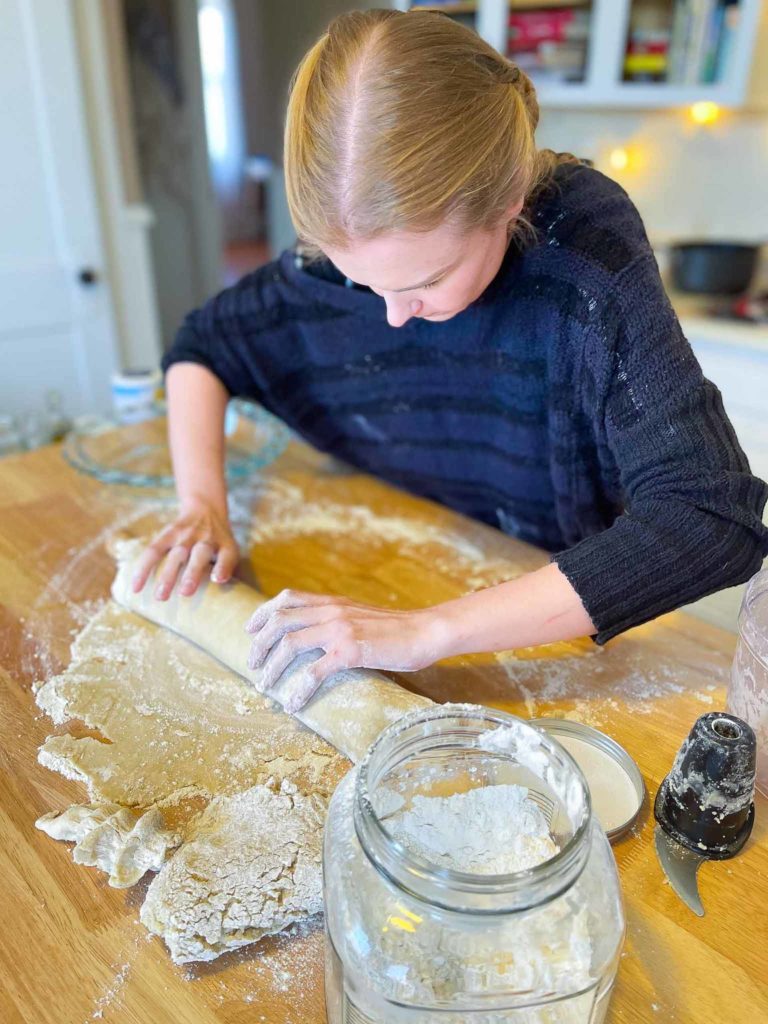
0 Comments